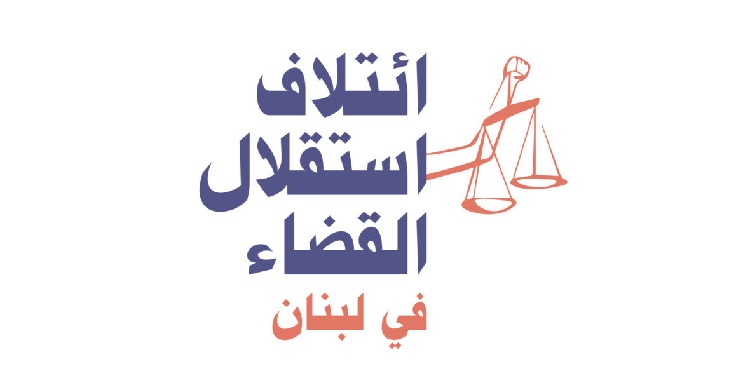Military Justice and Fair Trial in Lebanon (Executive Summary)

Military justice has been subject to broad legal debate regarding its ability to fulfill justice needs, such as ensuring fair trial by an independent tribunal as per international standards. In Lebanon, the military judiciary plays a significant role in the judicial system. Despite constituting an exceptional branch, it has vast jurisdiction that encompasses not only crimes committed by on-duty military personnel but also many crimes committed by military and security-agency personnel and civilians, including minors.
In light of the increased demands by activists and politicians to restrict the jurisdiction of Lebanon’s military judiciary, especially with regard to trials of civilians and cases concerning serious human rights violations, the Legal Agenda decided to contribute to the discussion from a human rights perspective by assessing the compliance of the military judiciary, as a form of exceptional justice, with the principles of fair trial set by international standards. This research paper is the first in a series of reports about the military judiciary’s role in providing accountability for crimes of torture.
This first paper is based on a review of the international and Lebanese legal frameworks related to military justice and qualitative interviews conducted with six judges, lawyers, and journalists in July 2023. It also relies on the Legal Agenda’s continuous monitoring of judicial and parliamentary work and on a review of five cases of torture that have been brought before the military judiciary. These cases concern the complaints filed by Ziad Itani (2018), Khaldoun Jaber and Hassan Choueib (2019), “the blacksmith” (a pseudonym, 2021), and Bachar Al Saoud’s family (2022).
Main Findings
The paper concludes that the Lebanese military judiciary does not guarantee a fair trial either for the people accused of crimes that fall under its jurisdiction or for the civilian and non-civilian victims of such crimes. In this regard, there are several issues:
- The current configuration of the military courts does not enable them to meet the requirements of apparent independence and impartiality. This shortcoming is due, in particular, to the courts’ composition: Their benches are mostly composed of military officers whose appointment is not governed by any objective criteria. These officers are not legally required to be qualified and proficient in law. They also remain under the authority of their respective agencies and the executive branch (the minister of defense).
- Military trial procedure does not provide sufficient fair trial guarantees for the following reasons:
2.1- Although the law recognizes the principle of public trials before the military judiciary, it grants military courts the discretion to prohibit the publication of hearing records, or summaries thereof, in the absence of any clear controls. Furthermore, access to the courtrooms is restricted because they are located inside military barracks, which the general public cannot enter without permission from the court’s president.
2.2- The law does not guarantee defense rights or the principle of lawyers’ independence. For instance, military courts can appoint military lawyers who lack the necessary competence and independence to act as defense counsel. Moreover, the president of the Military Court has the power to impose disciplinary sanctions on civilian lawyers, such as temporarily banning them from entering the court if they commit serious misconduct. Furthermore, the military judiciary’s bodies fail to uphold defense rights during preliminary investigations and to properly implement Article 47 of the Code of Criminal Procedure.
2.3- Defendants do not have the right to appeal rulings issued by the Military Court in misdemeanor or felony cases. Therefore, they are denied the right to have a higher court review their conviction or sentence. Moreover, while the law greatly restricts defendants’ right to appeal decisions by military investigating judges, it allows the Military Prosecution to appeal any such decision. Such provisions violate the principles of equality before the law and equality of legal opportunities.
2.4- The law does not oblige military courts to issue reasoned rulings that state the grounds on which they are based, making it harder to lodge appeals and deduce jurisprudence.
- The victims of crimes that fall under the jurisdiction of military courts are excluded. According to the law, victims cannot initiate private prosecutions and cannot take part in pre-trial investigations or trial proceedings. Therefore, they cannot influence the course of the trial or the outcome, which directly impacts their rights. In addition, the current practices prevent them from accessing legal documents related to their cases, thereby hindering their ability to exercise their right to legal remedy.
Recommendations
I- Parliament should conduct a thorough review of the laws governing the military judiciary in order to:
- Limit its jurisdiction to military-related crimes perpetrated by armed forces personnel. Its jurisdiction over crimes committed by civilians, minors, and individuals suspected of grave human rights violations, such as murder, enforced disappearance, and torture, should be ousted.
- Ensure the independence of military judges. To meet international standards, the provisions governing the appointment of military judges should be amended, their independence from the executive branch and the commanders of armed forces and security agencies should be upheld, and new conditions to ensure their legal knowledge and competence should be introduced.
- Introduce the fair trial guarantees stipulated in the Constitution, as well as the international agreements by which Lebanon is bound, into military trial procedure. These include, in particular, defendants’ right to have their verdicts reviewed by a higher court, the obligation to issue reasoned rulings, and the independence of military lawyers. Moreover, paragraphs 2-4 of Article 59 of the Code of Military Justice should be repealed.
- Provide victims of crimes falling under the military judiciary’s jurisdiction with the right to initiate or join prosecutions as a private party, take part in investigations and trial proceedings, and obtain all the documents of public prosecutions that affect their rights.
II- The military and criminal judicial authorities should:
- Interpret the legal texts governing the military judiciary’s jurisdiction narrowly in order to limit the power of these exceptional courts, which do not provide fair trial guarantees.
- Facilitate the public’s access to military trial hearings and its ability to obtain a copy of publicly rendered decisions in order to uphold the principle that military trials are public.
- Refrain from appointing military lawyers as defense counsel as they do not meet the required levels of independence and competence.
- Refrain from invoking Article 59 of the Code of Military Justice to discipline civilian lawyers as doing so infringes on their independence.
- Firmly apply Article 47 of the Code of Criminal Procedure in order to uphold defense rights during preliminary investigations and hold military judicial police personnel who violate investigation procedure and mistreat and torture suspects accountable.
- Interpret the legal texts governing the conditions under which defendants can challenge rulings against them at the cassation level broadly in order to mitigate the effect of the existing provisions that deprive them of their right to file regular appeals.
- Ensure that military courts issue reasoned rulings and present sufficient grounds to show how they reached them. A ruling should contain a description of the acts in question, a legal characterization of them, a discussion of the evidence presented, the defense’s requests, and the grounds for the sentence handed down.
- Ensure the right of victims of crimes that fall under the military judiciary’s jurisdiction to legal remedy by issuing written instructions allowing them to participate in investigation and trial procedures and obtain a copy of the entire casefile, including the preliminary investigation records and the documents and evidence in the court’s possession.
To read the full Paper in Arabic
Tags: Lebanon, Studies and Papers, Fair Trial and Torture, Independence of the Judiciary, Rule of Law, Accountability and Corruption.



